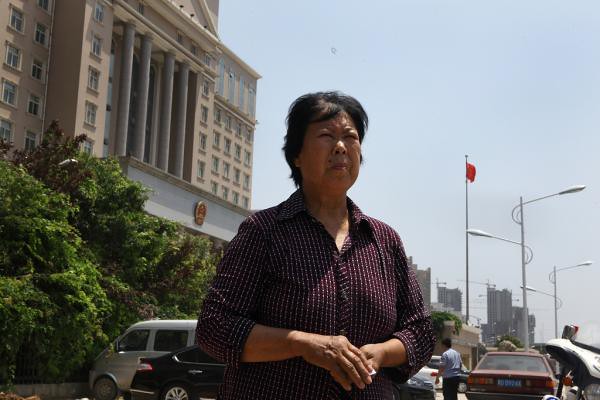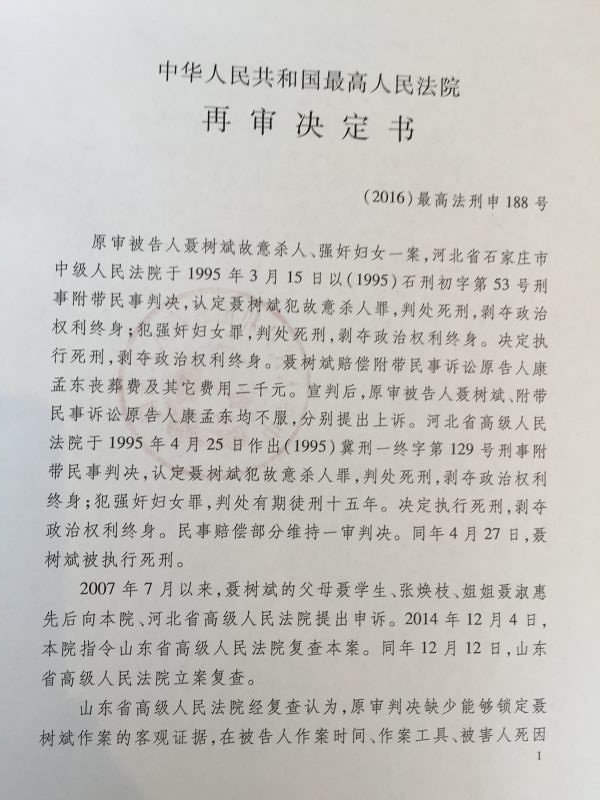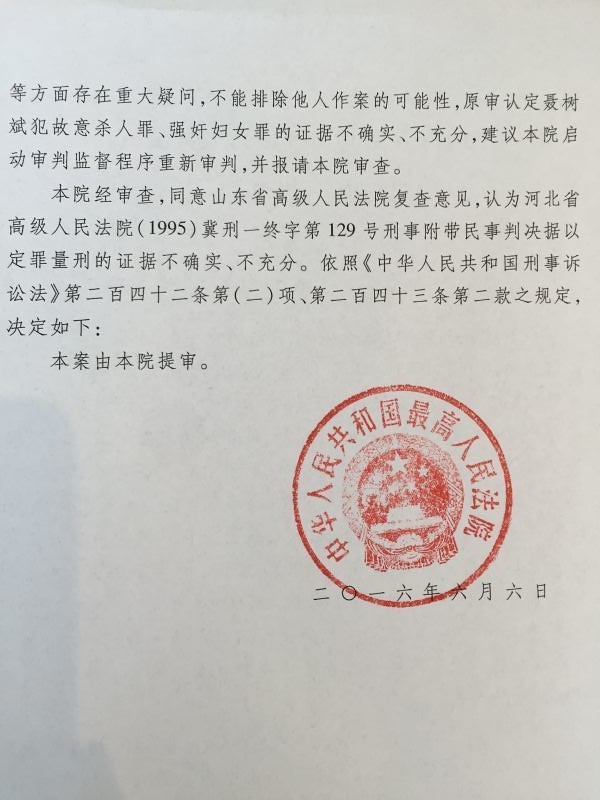Bai Yongrui Mr are Korea's Yonsei University History Department, Professor of modern Chinese history, a former Korea Institute of modern Chinese history. His book transversely in the near future in East Asia: Rethinking at the core scene of East Asian history was published by linking publishing company, this is white's second collection of Chinese books.
Professor white is "East Asia discusses" advocates. In his view, the "East" is not fixed in a geographical sense, but changing with change history. The "East" is broad, including Northeast Asia and Southeast Asia "East Asian". "This region with China leading tributary order applicable areas of overlap, has been used since the 19th century colonial and cold war, now have close ties in economic, cultural and. "Countries from the perspective of East Asia East Asian nationals history, East Asian people know each other, a topic of particular concern to white Professor. In modern times, in the political sphere in China, Japan and South Korea, historical problems and contradictions and conflicts on the national mood, how should we understand? Professor white accepted a surging News (www.thepaper.CN), e-mail interview.
Yonsei University doctoral candidate Ding Chen nan contributed to this article. I would like to thank.
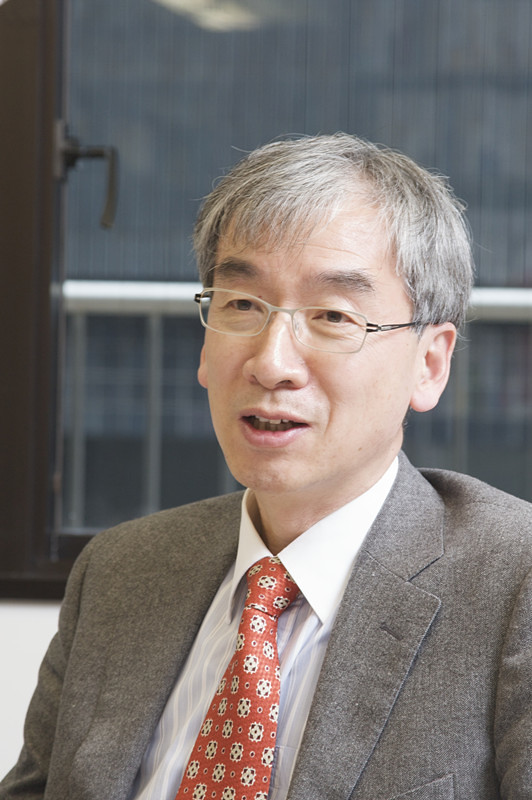
Yonsei University history professor Bai Yongrui
Surging News: you for mutual understanding between the people of East Asia seemed to be interested in mutual understanding of history between China and South Korea also have a series of visits. From the perspective of East Asia between China and South Korea know each other?
Bai Yongrui: Yes, I did to Korea man and very interested in the history of the Chinese people know each other, and also conducted research for a long time. However, perspective on the understanding of the relationship between the two countries is still not sufficient. I want to stress is, from the perspective of East Asia to revisit Korea and Chinese people have known each other. For example, in General, "asymmetric relations" in the history of bilateral relations is a constant factor, but due to third parties (such as Japan Empire or the United States) has also brought changes to the understanding. China today is "too Han" and "anti-Japan", Japan's "enough" and "too South Korea" Korea "anti Japanese" and "suspicion", only the angle between the two countries to grasp, impossible to properly review the linkage to each other's emotions.
Surging News: in the history of China-ROK relations, the so-called "same conditions", what does?
Bai Yongrui: first of all, I want to say is the asymmetry of bilateral relations. China, as a country and as a small country of Korea (or Peninsula), lies not only in territory and population size on the purely physical differences, just like there are historical and cultural differences in scale. This substantial feeling not only existed in the past, but also the future of Korea-China relations unchanged conditions.
Han was the second to concern in the proximity (contiguity) characteristics. Adjacent to the Korean peninsula and northeastern China, this characteristic are the core condition for bilateral relations. Forms and derivatives of historical and cultural proximity is also obvious. History Han's relationship with the ceaseless and because of the proximity.
Finally, Korea an important position and role in the bilateral relations are "unchanged". Although the asymmetrical relationship between the two, but China, as a big country, and cannot be unilaterally forced this on my own as a small country of Korea. Because survival problems, weak motivation than powers rule the motives of many resistance, and the country should consider Korea relations impact on other countries. If this is a Korea importance of reasons for negative, more positive reason, it can be said at each turning point in the order changed dramatically in East Asia, Korea China are having an impact. The Korean peninsula geopolitical (geopolitics) status conferred on a dual role on the Korean peninsula. Attitudes not only on the Korean peninsula could maintain order in East Asia, may also make the East Asian order to shake it. This fully applies to the Sino-Japanese war, the Russo-Japanese war and the Korea war (1950-1953), and even today (of the Korean peninsula is in a break state) change in East Asia.
Surging News: so, "changed conditions" and what?
Bai Yongrui: recently, a remarkable change in bilateral relations, constitutes the subject of bilateral relations has become more diversified, the degree of interdependence has been further deepened. In the era of the traditional bilateral relationship was largely limited to relations between States, also dominated by privileged minorities. Since the 20th century, population movement became very active across borders, and civil dimensions of bilateral relations has become very important. Such an Exchange diversification of and the deepening interdependence among non-State actors (Non-State-Actors) the status and role of growing international order is of great significance.
Another change is the strong South Korea's relationship with third countries involved in bilateral relations. China's defeat in the Sino-Japanese war, Japan in East Asia since the order status, especially in the Japan occupation, Japan Government and the people of China had also spread to Korea, lead Korea society formed a wave of defiance of China. Thus, Japan influence, we can appreciate the Korea and China's asymmetrical and proximity to a large extent been weakened. Since then, China's strategic position, while still important, but their main role is relatively weak. But under the influence of the cold war, the Korean peninsula after the North Korea and Korea were added to by the Soviet Union and the United States led two camps, North and South Korea with People's Republic of China of non-symmetry and proximity is also varied. Especially for Korea, Korea war, not only broke off formal diplomatic relations with China, still regard China as "enemies". In the United States under the influence of the hegemony of third countries, Korea society despised the "bamboo curtain" behind China, the China craze and defiance of the colonial trend are intertwined, so that the atmosphere becomes more intense. Into the post-cold-war period, rise again in China and the United States weakened the hegemony in a changing East Asian order, Korea (including Korea and the Korean peninsula) and China relations have entered a new period of adjustment.
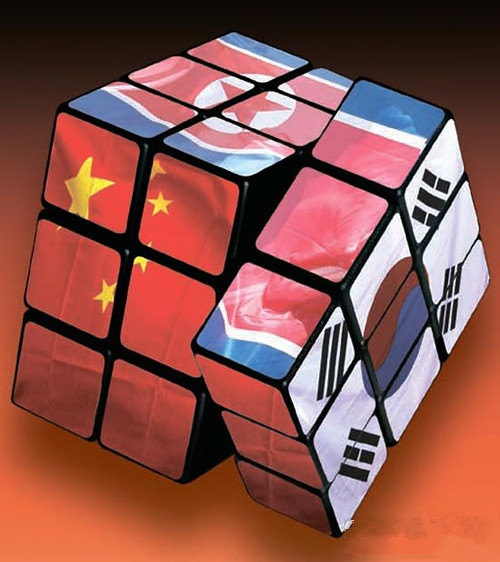
Stability on the Korean peninsula, China, the order in East Asia as a whole, have a great impact.
New Korea-China relations, "changes", such as the diversification of bilateral relations and the deepening of interdependence, as well as third-country effects, between the ROK "does not change" condition with what does that mean? Its significance lies in that historical context, explain the way of interaction between the two. Therefore, I intend to focus on interrelated "change" conditions and "not to change" form of the condition and South Korea know each other in a virtuous circle. Because of mutual understanding of problems, as we gathered all of the actors will create the future is of great significance. With the deepening of interdependence between the ROK, the current mutual understanding between the two countries have entered a stage of interaction, so pay attention to this problem, can be formed for future together provide the necessary core based on the relationship between the two countries.
Surging News: you will be Korea, and Taiwan and Okinawa as the three "core" examined, what is so special about the three places?
Bai Yongrui: first of all, I am curious how to understand Chinese "live" this phrase. Belong to the same Chinese character cultural sphere, in Japan and Korea, "site" is used in a similar context, was not referring to a simple place (place), but with life and reality (reality) is closely linked to "touch". I added a changes the meaning of the motion.
In fact, around us everywhere possible central scene. But be careful, as "everywhere the shots, Li is really" the Zen teachings, only in truly become the masters of their life, the core can be found. More specifically, spatio-temporal contradictions unite is the core site.
I have Arasaki, Cheng Hui Okinawa veteran scholars talked to Okinawa, he thinks this concept to fully describe, welcomed this. He talks about me, than to concerns raised by Chinese intellectuals in Okinawa, "Okinawa as a method" or "as the subject of Okinawa" concept, the so-called "core" concept seems more appropriate, want to use this concept in the future.
New Qi Cheng Hui will be marked for Okinawa Japan Empire "colony". After the second world war, which occupied Japan 0.6% of the territory brought together a 75% of US troops stationed in Japan, thereby shifting the burden of local. Okinawa does not concern State now can be said to be a "structural". This isn't my idea of "contradictions unite local" characteristics? Okinawa base issue not only directly related to Japan the fate of the regime, became the United States hegemony divisive core issues. Therefore, the US bases in Okinawa campaign and criticism of American hegemony is not affected by the field or Japan limit the scope of the local and becomes the world's big problems. So the new Mr Qi Cheng Hui Okinawa can be viewed as a core site.
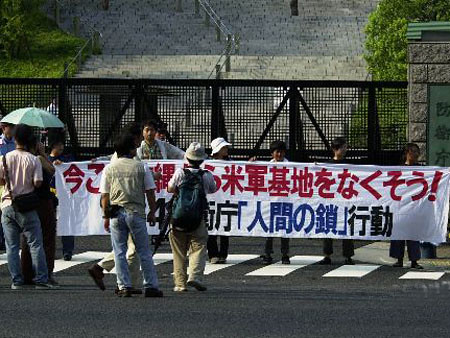
Japan people lock requests the removal of us bases in Okinawa.
Other than Okinawa, divided under the Korean peninsula, Taiwan and so on belong to the core concerns of my recent site. In these areas is due to imperial China-Japan-us axis movements of the imperial order of the Empire are the rank-order in East Asia where historical conflicts accumulated, and is under the influence of both the colonial and cold war, space is divided, is condensed on a dispute over place. Spatio-temporal contradictions and disputes are so interrelated, the ongoing vicious circle. So, to solve this problem, create peace in East Asia and as a medium for a virtuous circle of affected can become bigger and bigger.
Although I am concerned about these three places can be called "core", but in the area can also be found outside of the County and the other "core". An area to become a core site, need a combination of objective conditions and subjective conditions. Where the objective conditions of spatial and temporal contradictions that must be condensed, formation of main conditions must be known to the population of such a contradiction to want to resolve the conflict. From now on, we need more actively to found the core site.
Surging News: your attention to Okinawa, Korea, in the 20th century experienced the power of overlaps, impact, is still present even hot spot in international politics. What do you think of the complexity of modern sovereignty in these areas?
Bai Yongrui: touched upon this issue, the transversely in East Asia this book emphasize "sovereign constitute", I explained on this point.
Okinawa showing the complexity of national sovereignty. Ryukyu Kingdom was once at the edge of the Chinese world had a period of independent rule, and to remain a tributary relationship with the Ming and Qing dynasties. After Ryukyu Kingdom belongs to Japan's shogunate, but still maintain a tributary relationship with China, forming a kind of a relationship between the two is innervated. This double dominance, not China unilaterally forcing the results, but the two parties formed by strategically.
Later, in Japan under the rule of the Empire, Okinawa is considered "inner colonies"; the post-war United States occupation, is also considered "potential sovereignty (residual sovereignty)" area of application. 1972 "return" Japan zhihou, overlapping sovereignty issues remained. Compared with the previous scale instead of expanding the US military base there are "structural difference" roots. Its existence is still making people think Okinawa "return" the Japan local significance, that is, people ask what sovereignty means for Okinawans. In this case the Okinawa issue and the residents ' autonomy movement, become critical intellectual of national State in East Asia an opportunity to understand, being focused on research.
Then explain Korea situation. Since the late 19th century, Korea in the maintenance and the Qing tributary system at the same time, treaties concluded with other States the nature of modern relationships, early experience the complexity of sovereignty in two systems. During the colonial period, there has been a loss of sovereignty, to understand the importance of the restoration of sovereignty. During the cold war, the Korean peninsula is in the broken system, the Republic of Korea in the United States as the center of an informal Empire, through the "vulnerability of sovereignty (perforated sovereignty)". But in the process of promoting mutual exchanges and cooperation between the two Koreas, needs to come up with more innovative thinking and practice, in which "composite state theory" is an example of flexible thinking on sovereignty.
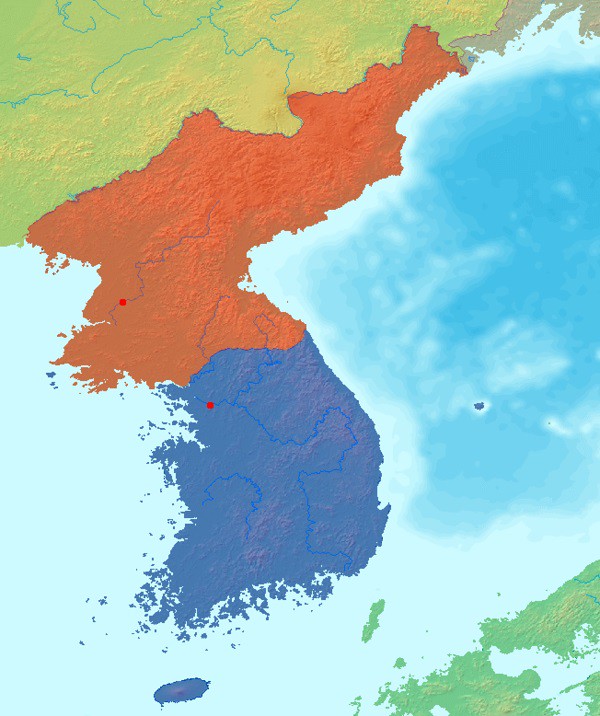
The military demarcation line on the Korean peninsula (38 lines) is undoubtedly one of the most representative traces of the cold war.
Composite national not "single national (unitary State)", but inclusive all national form--that various national joint (Confederation) and federal national (Federation)--of extension most broad of concept, while not will sovereignty problem stuck Yu single national national form among, with more with creative of way solution (sovereignty) problem of fundamental proposed, this a idea through 2000 years Han towards led layer developed of 6·15 common declaration The second (national joint or lower stage of Federal consensus), and avoid the confined to purely creative proposals of civil society, there have been two Governments further possibilities. Inter-Korean relations deteriorating situation like now, more urgent, but from the civil societies do not rigidly adhere to a single country, more creative efforts to resolve the sovereignty issue. In my opinion, Korea and Korean innovative composite state shape can promote the development of various autonomy movements in East Asia. Zoo shot gorillas for save the children United
Surging News: look, this book still has a strong Korea perspective?
Bai Yongrui: because my practice is the Korean peninsula, with a strong Korea perspective isn't a natural thing? As Korea people, I want to be able to use their familiar Korea historical experience and intellectual resources. I think that individuality in search for universality is a very important thing. From "non-European" Korea historical experience and resources of the individual seeking universality, is meaningful for human development. I am trying to find universality in the individual, is also being emphasized Korea individual special or coerced by nationalism, it will be left to the reader to judge.
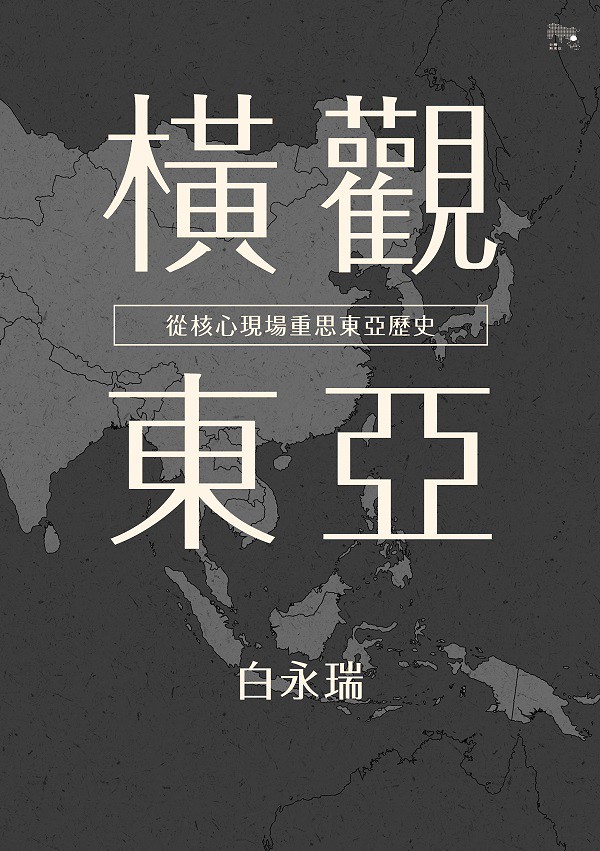
The transversely in East Asia: Rethinking East Asian history at the core site, linking Taipei, March 2016
















